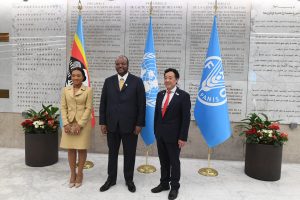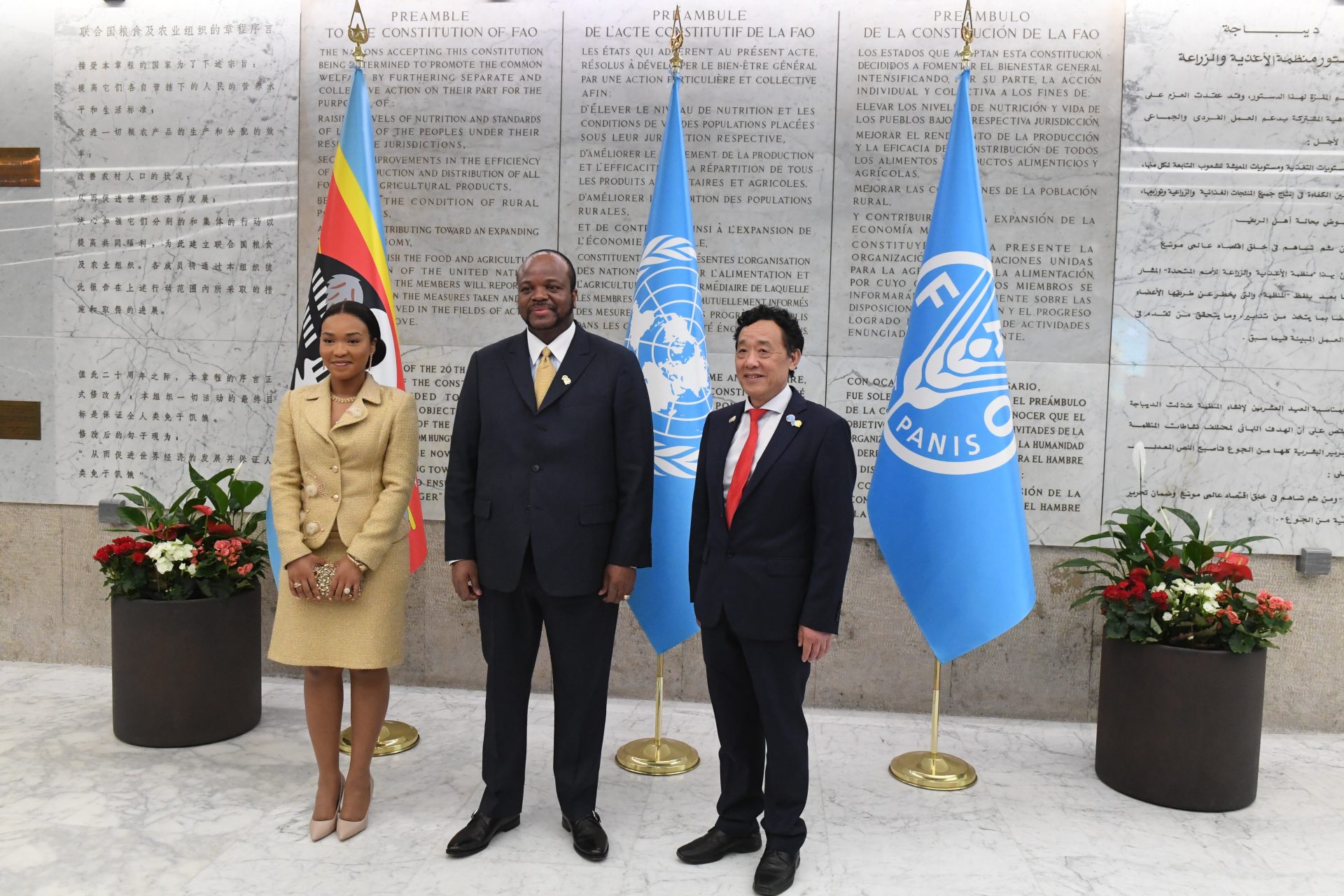By King’s Office Correspondents
HIS Majesty the King has stated that the global hunger rate is excessively high and that a “Nkwe” action approach is necessary to address it.
He has since proposed a seven-point solution to help address the food crisis.
Delivering his address at the World Food Forum (WFF) in Rome, Italy, on Monday, the King noted that due to global events like Covid-19 and armed conflicts, progress towards achieving Sustainable Development Goal (SDG2) 2 of zero hunger has slowed down.
The King lamented the unsatisfactory outcomes of current agricultural systems, which are leaving many people behind, particularly in Africa.
RELATED: King jets off for three-country work trip
He referred to the 2024 report on food security and nutrition in the world, which reveals a significant increase in global hunger due to Covid-19.
The report reveals that hunger affected 9.1 per cent of the world population in 2023, which is 152 million more people than in 2019, with Africa having the largest population facing hunger at 20.4 per cent.
He further revealed that about 590 million people worldwide will still suffer from hunger in six years’ time.

In proposing seven possible solutions to address this challenge, the King said they could be adopted and customised for agri-food system transformations in many contexts.
The proposals include:
1) Transforming agri-food systems to become resilient and inclusive, involving government intervention to ease business costs and reduce over-regulation that discourages small and medium-scale enterprises’ formalisation.
2) Promoting healthy eating by pushing for diversity, fresh food, resilient crops, local production, and limited consumption of processed foods.
3) Promoting regenerative agriculture, a system that, among other things, supports biodiversity, enriches soils, improves watersheds, increases carbon capture, contributes to global warming reversal, and fostering a ‘life-begets-life cycle.’
4) Switching to resilient, sustainable, and inclusive food systems, especially for low-resourced communities. Instruments and incentives to facilitate this include smart subsidies, structured incentive frameworks and smallholder-inclusive financial instruments.
RELATED: King Mswati III calls for an increase in trade between Eswatini and Zimbabwe
5) Climate finance presents an opportunity to transform food systems and make them more sustainable, especially if blended with public, private sector and development partners’ finances.
6) Support the deployment of green technologies, which include conservation agriculture techniques, integrated farming approaches, tunnel production, shade netting, plastic mulching, vertical production, solar-powered systems for water and processing, as well as drip irrigation systems, to mention a few.
7) Harness the accelerators of agri-food systems transformation as identified by FAO, namely, data and information systems, digital technologies and innovation, as well as fit-for-purpose institutions.
The King revealed that in Eswatini, a national call known as “Nkwe’, signifying ‘fast action now,’ has become central to addressing significant aspirations and innovations for the people, and he urged leaders to take immediate action to address the food crisis.
“We must not rest until every country becomes self-sufficient. I leave you with a new word calling for action now: ‘Nkwe’!


